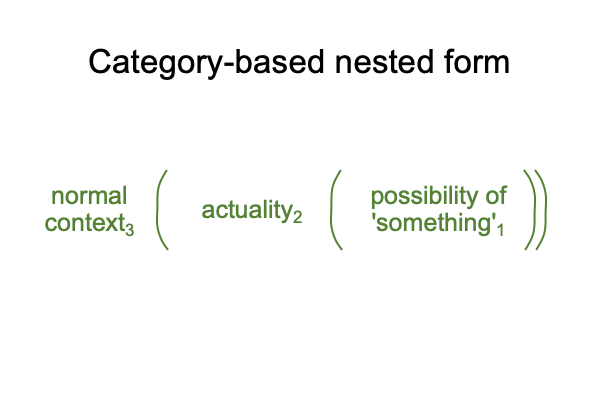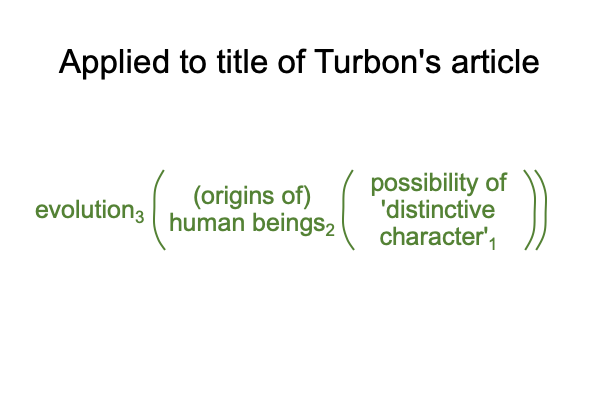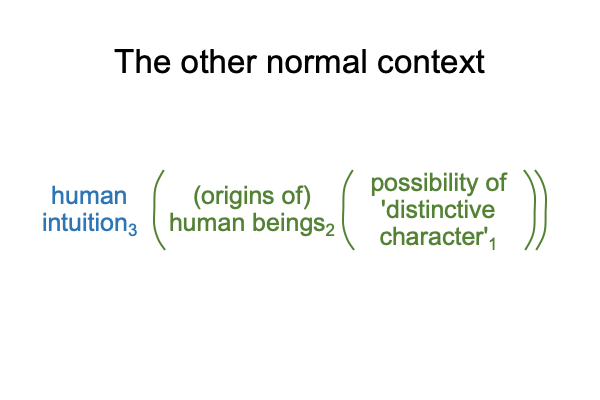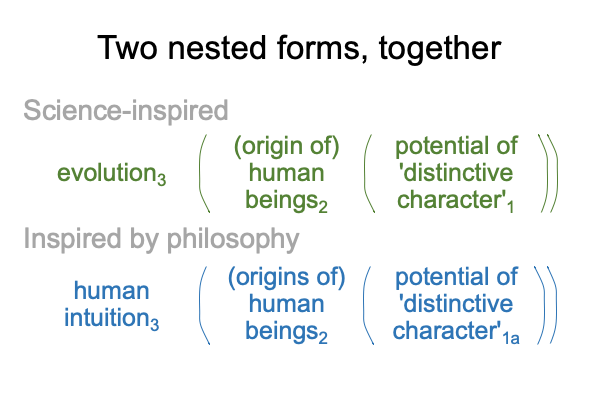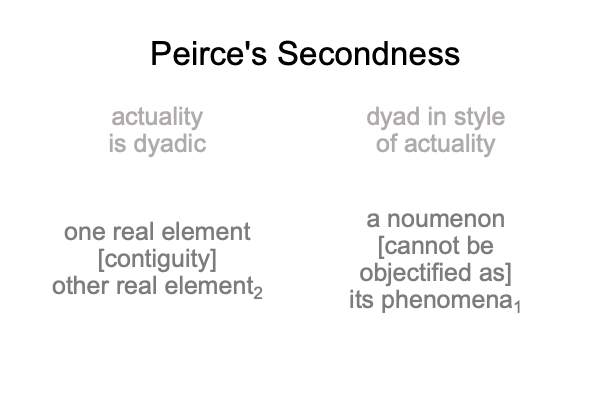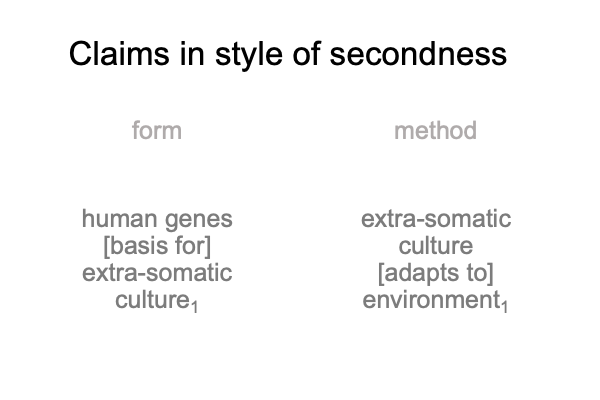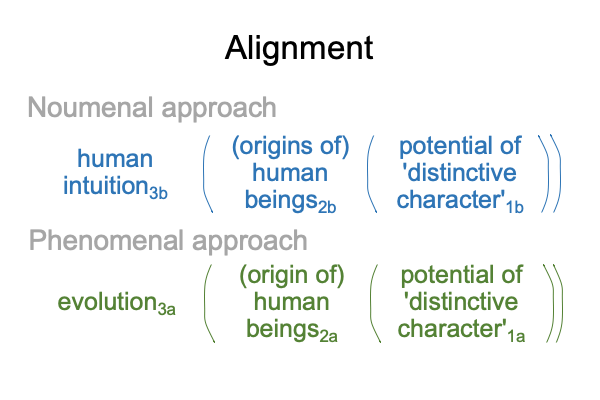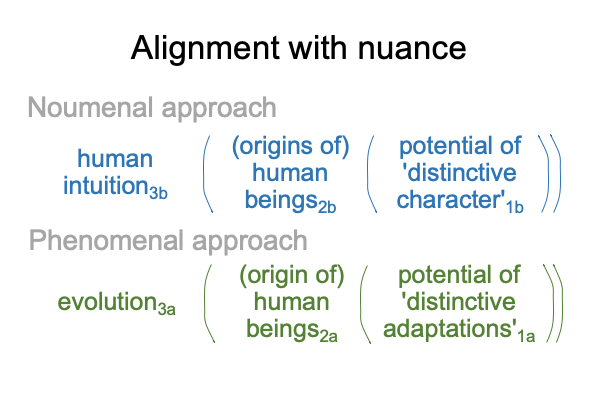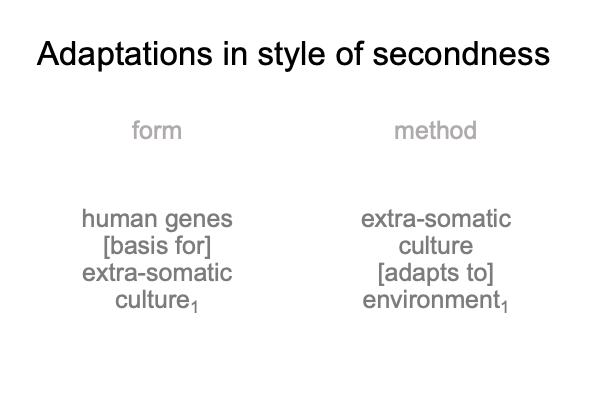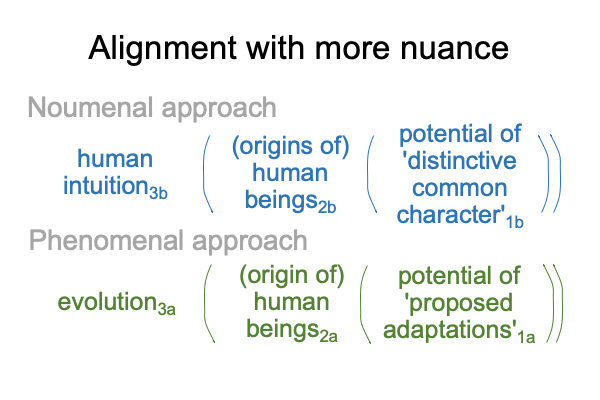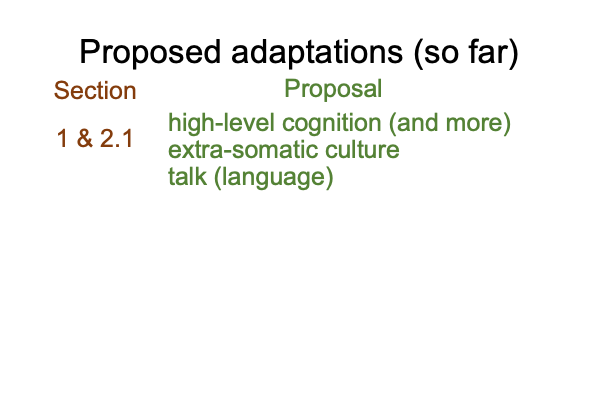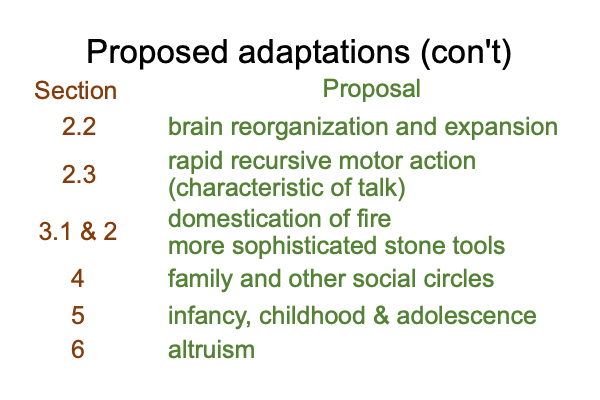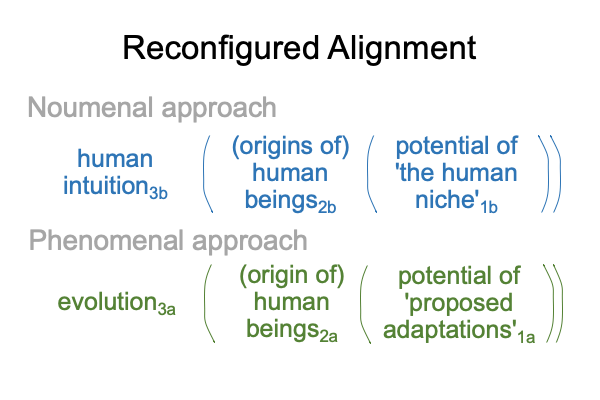Looking at Jeff Hardin’s Essay (2019) “Biology and Theological Anthropology” (Part 15 of 15)
0079 Jeff Harden follows his appeal with summaries of faithful Christian approaches to human origins. These approaches include models of existential recapitulation, of protohistory, of representative ancient ancestors, of recently, elected representatives and of genealogies, as opposed to genetics.
None of these are adequate.
0080 Why?
They do not fit the fairy tales about Adam and Eve.
0076 In this look at Hardin’s article, another option appears. It appears as a mirror image of his opening question. It asks, “Why doesn’t evolutionary science recognize a twist in human evolution?”
The answer wonders, “Why is our current Lebenswelt not the same as the Lebenswelt that we evolved in?“
The hypothesis of the first singularity is a scientific mechanism that works as an adjunct to theological formulations.
Indeed, we come to a new age of understanding, which the late John Deely, calls “The Age of Triadic Relations”.
0077 Here is a picture of three masterworks and their corresponding periods in human evolution.
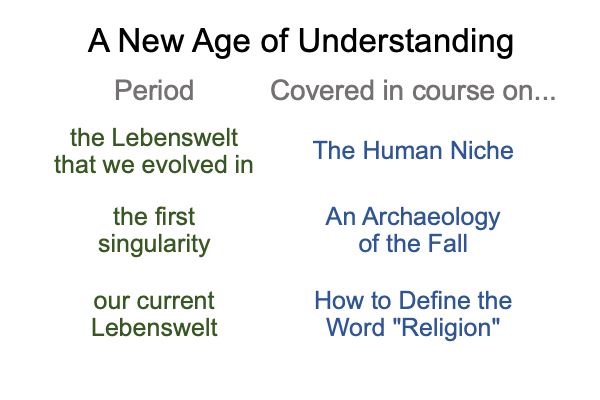
0078 My thanks to Jeff Hardin, Chair, Biologos Board of Directors, for his mind-opening essay.

